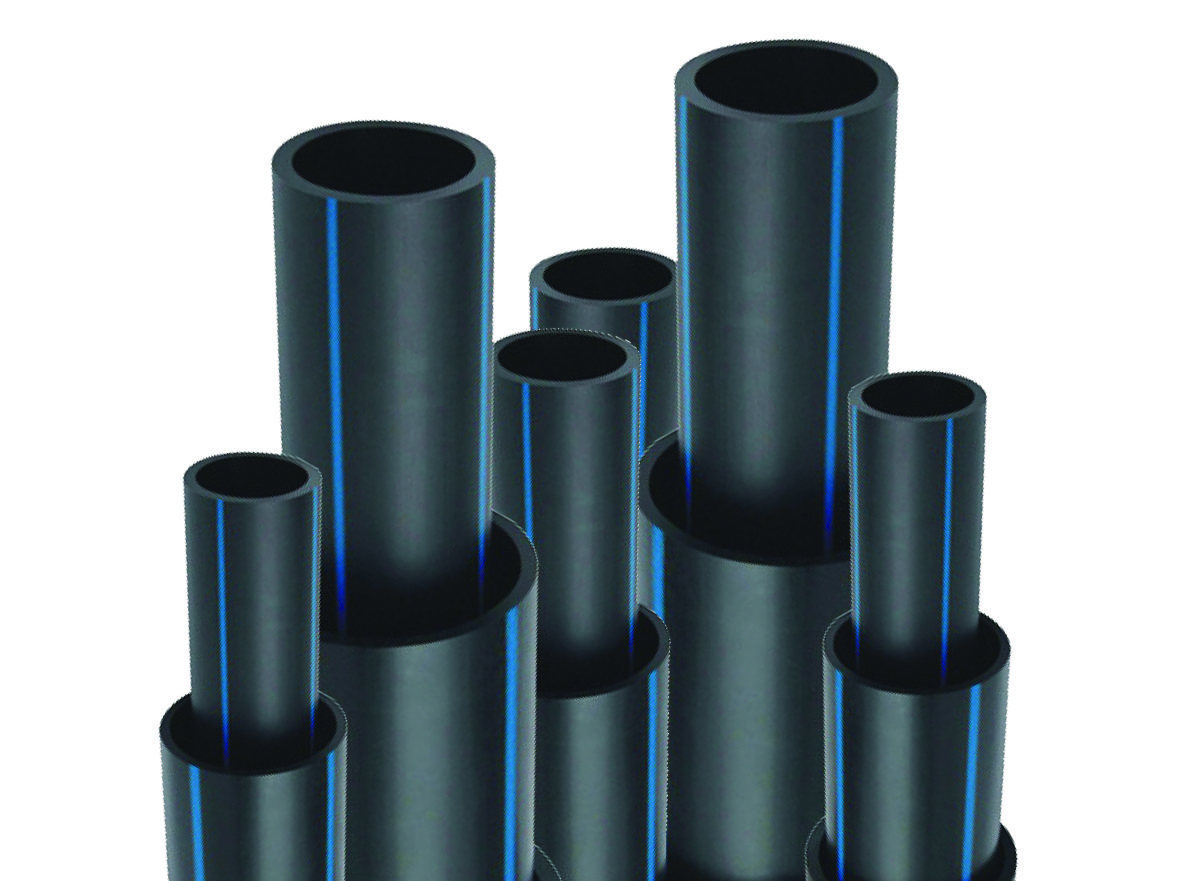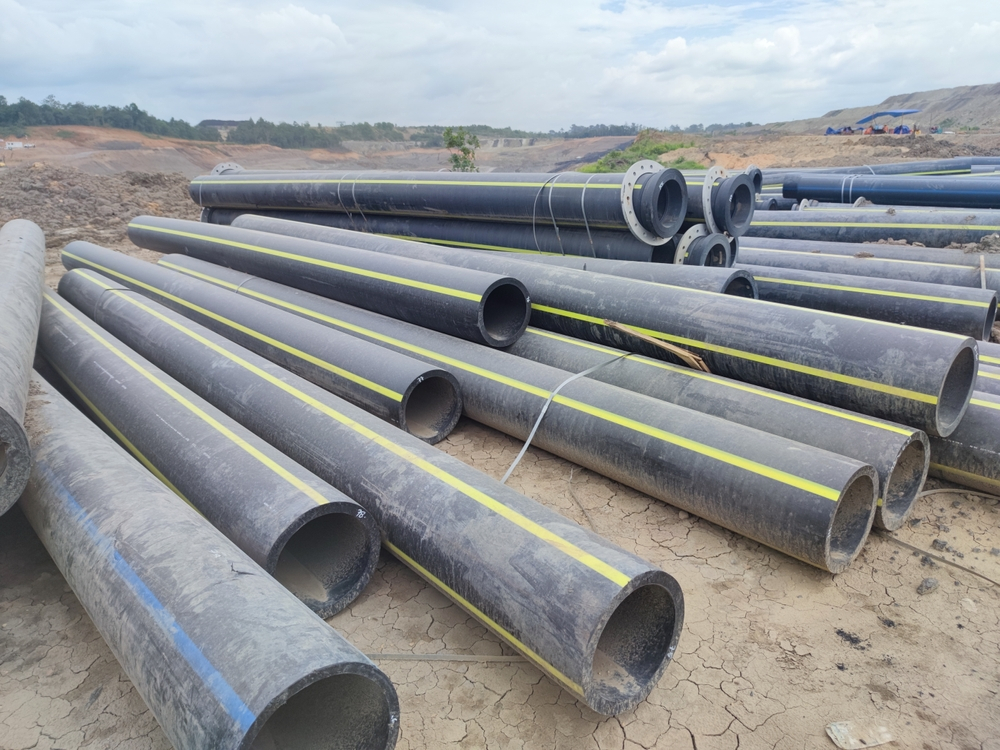Recognizing the Key Advantages of HDPE Pipeline for Water and Wastewater Management
The use of HDPE pipeline in water and wastewater administration provides countless advantages that warrant consideration. Its extraordinary toughness and long life-span make it a recommended choice for lots of tasks. In addition, the material's resistance to corrosion and chemical damage enhances its integrity in different settings. The advantages expand beyond simply long life and resistance. Midland TX HDPE Pipe Fittings in Stock. Discovering its cost-effectiveness and environmental effect reveals much more compelling reasons for its widespread adoption in modern facilities
Extraordinary Sturdiness and Longevity

HDPE pipeline stands apart for its outstanding sturdiness and long life, making it a preferred selection in water administration systems. Constructed from high-density polyethylene, these pipelines can hold up against considerable stress and stress and anxiety, ensuring reliable efficiency over time. Their robust nature enables them to sustain extreme environmental conditions, including temperature level fluctuations and dirt motions, which can create various other products to fail.
The life expectancy of HDPE pipes typically exceeds 50 years, offering an economical solution for communities and sectors alike. In addition, the material's lightweight buildings simplify installment, decreasing labor costs and durations. This longevity decreases the demand for frequent repairs or replacements, better improving its financial charm.
In water monitoring applications, the dependability of HDPE pipelines suggests fewer disturbances and enhanced solution continuity, making them indispensable to lasting infrastructure advancement. The combination of resilience and durability strengthens HDPE's duty as a cornerstone in effective water administration remedies.

Resistance to Rust and Chemical Damages
While lots of materials catch rust and chemical damage in time, HDPE pipes display remarkable resistance, making them excellent for various water monitoring applications. This durability originates from the molecular framework of high-density polyethylene, which is inherently non-reactive and does not corrode like metals or weaken from direct exposure to harsh chemicals. Therefore, HDPE is highly efficient in atmospheres with aggressive compounds, such as wastewater systems that may contain acids, bases, and natural solvents.
Additionally, HDPE pipes can withstand ecological elements such as soil acidity and saline conditions, even more boosting their viability for diverse applications (custom hdpe pipe manufacturing Midland TX). Their ability to maintain architectural stability gradually lowers the threat of leakages and failings, which is essential in ensuring the security and reliability of water distribution and wastewater management systems. The resistance to corrosion and chemical damages markedly adds to the general effectiveness and durability of HDPE piping solutions.
Cost-Effectiveness and Economic Benefits
When considering the economic effects of water management systems, the cost-effectiveness of HDPE pipes becomes obvious. These pipes use reduced installment and maintenance costs compared to typical products like steel or concrete. Their light-weight nature simplifies transport and setup, leading to decreased labor expenditures. Additionally, HDPE pipelines show a lengthy life-span, frequently going beyond 50 years, which equates to less substitutes and lasting financial savings.
The resistance of HDPE to deterioration and chemical damages decreases the need for expensive repairs and substitutes. The pipes additionally sustain reliable water circulation, lowering power expenses connected with pumping systems. By alleviating leakages and water loss, HDPE pipes add to significant economic advantages for districts and sectors alike. Overall, the first investment in HDPE piping can produce considerable monetary returns over the lifespan of the water management system, making it a sensible option for sustainable facilities growth.
Environmental Sustainability and Decreased Effect

Versatility and Adaptability in Installation
Since of their special buildings, HDPE pipelines provide impressive convenience and adaptability in installation, making them ideal for a variety of applications. Their light-weight nature permits easier handling and transportation, lowering labor costs and setup time. HDPE pipelines can be curved and shaped to fit various surfaces and project demands, which is particularly valuable in testing settings.
In addition, their resistance to corrosion and chemical damages enables installment in varied setups without the demand for specialized protective coverings. The here capability to fuse joints produces a continual, leak-free system, improving the general honesty and reliability of the installment. HDPE's flexibility additionally suits ground movement, minimizing the risk of damages in locations vulnerable to shifting dirt. Generally, these attributes make HDPE pipelines not just functional however likewise a recommended selection for water and wastewater management systems.
Frequently Asked Concerns
Just How Does HDPE Pipe Contrast to PVC in Water Management Applications?
HDPE pipeline offers premium flexibility, resistance to deterioration, and sturdiness compared to PVC. Its lighter weight facilitates much easier installation, while its lengthy lifespan lowers replacement costs, making HDPE a recommended option in water management applications.
What Is the Life Expectancy of HDPE Pipeline Under Common Conditions?
Under normal problems, HDPE pipelines can have a lifespan ranging from 50 to 100 years. Their longevity and resistance to corrosion add to their long-term efficiency in different applications, making them a reputable choice for facilities.
Are HDPE Pipeline Recyclable After Their Life Span?
Yes, HDPE pipelines are recyclable after their life span. hdpe pipe fittings Midland TX. They can be processed and repurposed into new products, considerably lowering ecological effect and promoting sustainability within the industry, making them an environmentally friendly option for piping remedies
What Is the Setup Process for HDPE Pipes?
The installment procedure for HDPE pipes involves site preparation, trenching, pipeline combination or mechanical joining, backfilling, and stress testing. Proper methods ensure a long lasting and efficient system for moving water and wastewater successfully.
Can HDPE Pipes Be Used for Both Safe And Clean and Non-Potable Water Solutions?
Yes, HDPE pipelines can be used for both drinkable and non-potable water systems. Their flexibility, longevity, and resistance to rust make them suitable for numerous applications, ensuring secure and effective transport of water in different contexts.